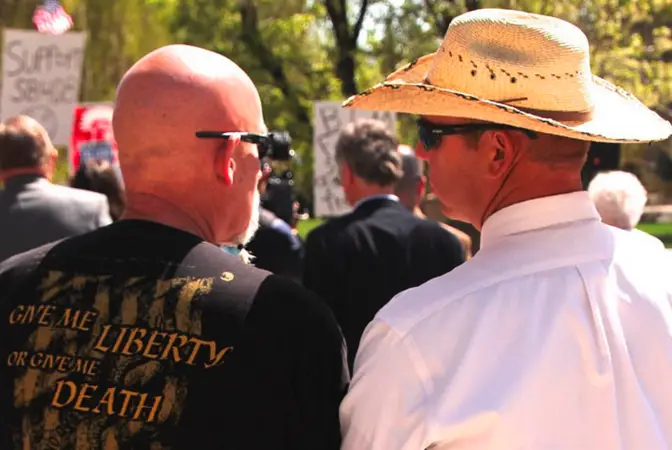
Last June, the ranchers in middle-of-nowhere Battle Mountain, Nevada, stuck it to the federal government by herding cattle onto public rangeland which had been closed to grazing to protect it from the West’s blistering drought. Meanwhile, many of those protesting were collecting drought subsidies.
This final act of hypocrisy ended two years of rancher protests against the grazing restrictions imposed by the U.S. Bureau of Land Management (BLM), which is responsible for thousands of miles of arid federal land in Nevada. The BLM backed down and opened the range.
By claiming that drought regulations were personal attacks, even as they received hefty checks, the Nevada ranchers got their way. According to Reveal, who obtained records related to the entire ordeal, two ranching families at the center of the protests received over $2 million in subsidies.
Protest leader Dan Filippini, who set hundreds of cattle loose on the closed range, received roughly $1 million in federal payouts in 2014. Over the course of the same year, in the midst of all these government subsidies based on drought-related business damages, lawyers for the Filippini family stated that “no drought exists” on the Battle Mountain range in an appeal of the BLM’s closure order.
Eddyann Filippini told the Elko Free Daily Press in a letter to the editor that,
“Government agencies that administer grazing have gone rogue. They have shoved their bureaucratic policies down our throats.”
The second highly paid family denying the draught, who rode to D.C. on horseback to protest on the Grass March Cowboy Express in 2014, is the Tomera family. Records show that the government has made three separate payments to Tomera family interests totaling over $1 million. The family called the BLM’s environmental preservation tactics,
“…one of their many tools to restrict grazing or curtail it altogether.”
The subsidy program compensates ranchers who claim that the drought disaster has caused the price of feed to rise, resulting in financial losses. These families have claimed that the drought disaster has hurt their livelihoods enough to entitle them to reparations, but also that there’s no drought and government restrictions on grazing land are just an attack on their way of life.
All ranchers who received these reparations originally filled out applications proving they were pastured in a county the U.S. Drought Monitor considered negatively effected by the drought.
[Grist.org] Featured image via Flickr





Leave a Reply